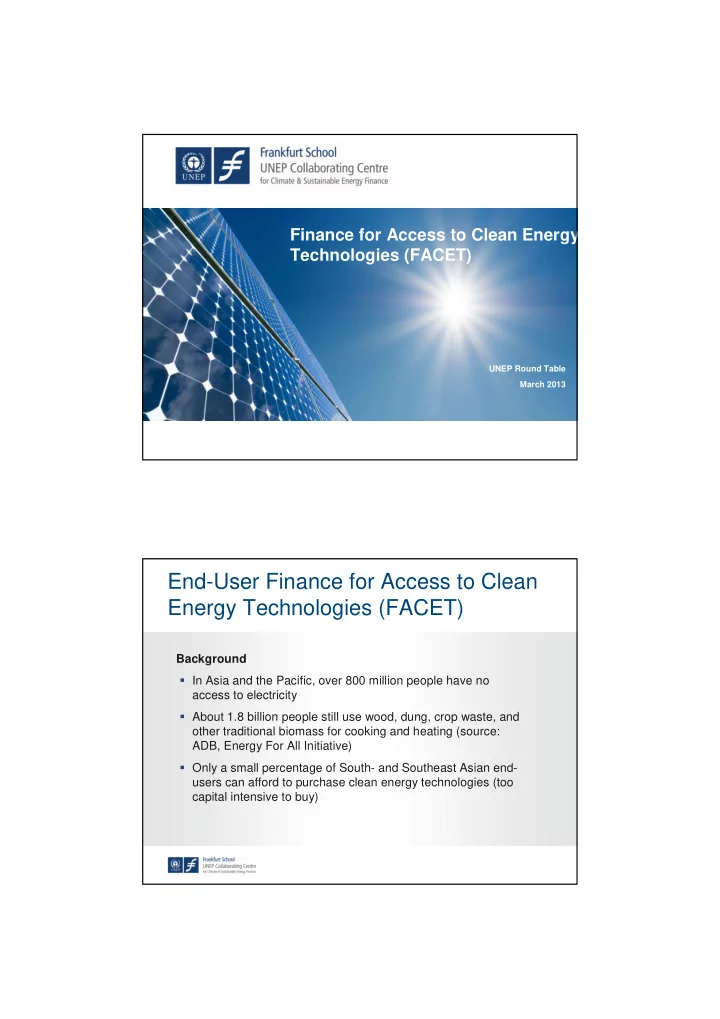

Finance for Access to Clean Energy Technologies (FACET) UNEP Round Table March 2013 End-User Finance for Access to Clean Energy Technologies (FACET) Background � In Asia and the Pacific, over 800 million people have no access to electricity � About 1.8 billion people still use wood, dung, crop waste, and other traditional biomass for cooking and heating (source: ADB, Energy For All Initiative) � Only a small percentage of South- and Southeast Asian end- users can afford to purchase clean energy technologies (too capital intensive to buy)
End-User Finance for Access to Clean Energy Technologies (FACET) Objectives Mobilizing financial access to clean energy in Indonesia and � Vietnam Providing temporary financial support mechanisms like � interest rate softening or partial guarantees, combined with TA and capacity building measures Initial disbursements of around 10,000 loans per country � Initiate and scale up domestic bank lending to end-users of � small-scale energy technologies in South and South-East Asia Eligible Technologies Biogas Solar water heaters Solar PV digesters
Eligible Technologies cont. Micro-hydro systems Improved biomass cook-stoves Eligible Technologies cont. Energy efficient appliances (e.g. air conditioners or refrigerators) � � � � Labelling as mandatory precondition
Status in Southeast Asia I. Project preparation II. Project implementation Financial Support Mechanisms: Interest Pre-selection of countries rate softening, partial guarantees and technologies Desk studies: Short-list of partner Technical Support & countries and appropriate technologies Capacity Building Stakeholder consultations: Vietnam, Final goal: Disbursement of 10,000 – Indonesia 20,000 microloans for clean energy technologies Design of Individual country programmes: Selection of technologies, local partners, and Current phase support mechanisms Key Success Factors Country selection: Favourable framework conditions, i.e. RE � laws and action plans, low/decreasing fossil fuel subsidies, etc. Technology selection: Commercial availability, widespread � supplier networks, reliable partners, vendor qualification, definition of minimum product standards FI selection: Own funding, wide outreach/network, � motivated/qualified staff, top management support Financial support mechanisms (e.g. interest subsidy, credit, � guarantee) must be adapted to local market needs Awareness raising among end-users, communication � (partnership) among stakeholders, capacity building in FIs
Thank you. Contact: Torsten Becker, Frankfurt School of Finance & Management, t.becker@fs.de
Recommend
More recommend